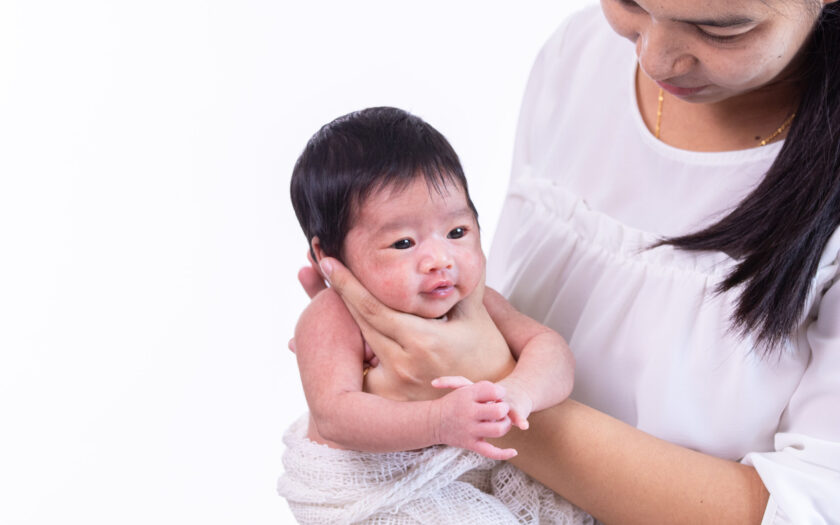Dehydration occurs when your body doesn’t have enough fluids to function properly. This can lead to serious health issues if not addressed promptly. If you suspect severe dehydration in yourself or someone else, it is crucial to seek medical attention immediately.
Dehydration happens when your body loses more fluids than it takes in. This can be due to various factors, such as excessive sweating, vomiting, diarrhea, or insufficient fluid intake. When dehydrated, your body struggles to perform essential functions, leading to symptoms like dry mouth, dizziness, fatigue, and dark urine.
In contrast, when your body has an adequate amount of water, it can operate efficiently, maintaining hydration and supporting overall health. To stay hydrated, it’s important to drink enough water daily, especially during hot weather, intense physical activity, or illness.
Understanding the importance of proper hydration and recognizing the signs of dehydration can help you take proactive steps to maintain your health and seek timely medical assistance when needed.
Recognizing Dehydration: Key Signs and Symptoms to Watch For
Mild to Moderate Dehydration:
If you are mildly to moderately dehydrated, you might experience the following symptoms:
- thirst: Feeling a persistent need to drink fluids;
- dry Mouth, Lips, and Tongue: A noticeable lack of moisture in the mouth and on the lips;
- dizziness or Light-headedness: Especially when standing up quickly;
- headache. A common symptom associated with dehydration;
- dark Urine. Urine that is darker than usual and produced in smaller amounts.
Severe Dehydration:
Severe dehydration is a medical emergency and presents more serious symptoms:
- extreme Thirst. An urgent and overwhelming need to drink;
- very Dry Mouth. Severe dryness of the mouth and throat;
- rapid Breathing. An increased breathing rate;
- fast Heart Rate and Low Blood Pressure. A rapid pulse combined with a drop in blood pressure;
- fever. Elevated body temperature;
- little or No Urine. Very little or no urine output;
- irritability, Drowsiness, or Confusion. Changes in mental state and alertness.
Immediate Actions for Dehydration:
If you experience any symptoms of dehydration, take these steps:
- move to a Cool Place. Find a shaded or air-conditioned area;
- loosen Tight Clothing. Remove unnecessary layers and loosen any tight garments;
- drink Small Amounts of Cool Water Frequently. Sip cool water regularly to rehydrate gradually.
Seek Medical Advice:
If your symptoms do not improve after taking these measures, seek medical advice promptly to prevent complications and ensure proper treatment.
Understanding the Causes of Dehydration: Key Factors and Prevention
Dehydration occurs when your body loses more fluids than it takes in. Several factors can contribute to dehydration, including:
- strenuous Exercise: Engaging in intense physical activity, especially in hot weather, increases fluid loss through sweat;
- severe Vomiting or Diarrhea: Both conditions can rapidly deplete your body’s water and electrolytes;
- fever: Elevated body temperature can increase fluid loss through perspiration;
- excessive Alcohol Consumption: Alcohol is a diuretic, causing increased urine production and leading to fluid loss;
- certain Medications: Diuretics and other medications can increase urine output, contributing to dehydration;
- diabetes: High blood sugar levels can cause increased urination and fluid loss;
- inadequate Water Intake: Simply not drinking enough water to meet your body’s needs.
High-Risk Groups:
While anyone can become dehydrated, certain groups are at higher risk:
- babies and Young Children: They have a higher water content in their bodies and can lose fluids quickly;
- older Adults: Aging can diminish the body’s ability to conserve water and sense of thirst;
- people with Long-term Illnesses: Chronic conditions can affect fluid balance and increase dehydration risk.
Prevention Tips:
- stay hydrated by drinking plenty of water, especially during hot weather and physical activity;
- monitor fluid intake and output, particularly if you are ill or taking medications that increase urine production;
- be vigilant about hydration in vulnerable groups, ensuring that babies, young children, older adults, and those with chronic illnesses drink enough fluids regularly.
Understanding these causes and taking proactive measures can help prevent dehydration and maintain optimal health.
When to Seek Medical Attention for Dehydration
If you, your baby, child, or elderly relative is severely dehydrated, it is crucial to seek urgent medical attention. Visit your doctor or go to a hospital emergency room immediately.
Severe dehydration can lead to serious complications affecting various parts of the body, including:
- Kidneys. Dehydration can impair kidney function, potentially leading to kidney stones, urinary tract infections, and in severe cases, kidney failure.
- Heart. Dehydration can cause a rapid heart rate and low blood pressure, putting extra strain on the heart.
- Brain. Severe dehydration can affect cognitive function, leading to confusion, irritability, and in extreme cases, unconsciousness.
- Blood Vessels. Dehydration reduces blood volume, which can lead to circulatory problems and increased risk of shock.
It is important to consult your doctor if you have any concerns about dehydration, especially if symptoms persist or worsen. Early medical intervention can help prevent complications and ensure proper treatment.
Effective Treatments for Dehydration: What You Need to Know
Severe dehydration requires immediate medical treatment. In a hospital setting, you will receive fluids through an intravenous (IV) drip to quickly restore hydration and electrolyte balance.
For mild dehydration, increasing your water intake is the best course of action. Drink small amounts of water regularly throughout the day.
In addition to water, you can use oral rehydration solutions (ORS) available at pharmacies. These solutions are designed to replace lost fluids and electrolytes effectively. If you prefer, you can make your own rehydration fluid at home using the following recipe:
Homemade Rehydration Fluid Recipe:
- 6 teaspoons of sugar;
- ½ teaspoon of salt4
- 1 liter (5 cups) of boiled water (cooled).
Stir the mixture until the salt and sugar are completely dissolved.
Tips to Avoid Dehydration:
- avoid alcohol and caffeine, as they can increase fluid loss and worsen dehydration;
- drink water regularly, especially during hot weather, illness, or intense physical activity.
Recognizing the signs of dehydration early and taking appropriate steps to rehydrate can help prevent complications and maintain overall health.
Preventing Dehydration: Tips and Strategies for Staying Hydrated
Ensuring adequate fluid intake is essential for preventing dehydration. Follow these guidelines to maintain proper hydration levels:
1. Drink Enough Water Daily:
- Aim to consume sufficient water throughout the day to meet your body’s needs.
2. Increase Fluid Intake During Certain Situations:
- During Hot Weather: In hot climates or during periods of high heat, increase your fluid intake to compensate for sweat loss.
- When Ill: If you’re sick with a fever, vomiting, or diarrhea, you may lose fluids more rapidly. Drink extra fluids to prevent dehydration.
- During Exercise: Engage in strenuous physical activity? Make sure to drink plenty of water before, during, and after exercise to replenish lost fluids.
3. Choose Water as Your Primary Hydration Source:
- Water is the best choice for hydrating your body. Opt for water over sugary drinks or caffeinated beverages.
4. Follow Daily Fluid Intake Recommendations:
- As a general guideline, adults should aim to drink approximately 2 to 2.5 liters of fluid per day to maintain proper hydration levels.
- Children should consume around 1 to 2 liters of fluid daily, adjusting intake based on age, size, and activity level.
By prioritizing hydration and following these recommendations, you can effectively prevent dehydration and promote overall health and well-being.
Understanding Dehydration in Infants and Toddlers: Signs, Prevention, and Treatment
Babies and young children are at a higher risk of dehydration compared to adults, particularly when they are ill. Various factors can contribute to rapid dehydration in infants and toddlers, including vomiting, fever, diarrhea, or inadequate fluid intake during illness.
Signs of mild dehydration in babies and toddlers may manifest as fewer wet diapers or less urine output than usual. Older children may exhibit reduced frequency of urination.
Severe dehydration in babies may present with a sunken fontanel, the soft spot on the top of the head.
It’s crucial to seek medical attention promptly if your baby or young child exhibits the following symptoms:
- inadequate Feeding or Drinking: Refusal to feed or drink adequately;
- irritability or Drowsiness: Increased fussiness, irritability, or lethargy;
- pallor or Mottled Skin: Pale or patchy skin tone, indicating poor circulation;
- any Concerning Signs: Trust your instincts and seek medical advice if you are worried about your child’s health.
If you observe any of these symptoms, consult your doctor urgently or visit the nearest hospital emergency department for prompt evaluation and treatment. Early intervention can prevent complications and ensure the well-being of your child.
Understanding Dehydration in Seniors: Risks, Signs, and Prevention Strategies
Older adults are prone to dehydration due to various factors, including:
- impaired Kidney Function. Age-related changes in kidney function may affect the body’s ability to retain water;
- chronic Illness. Underlying health conditions can increase the risk of dehydration;
- limited Mobility. Reduced mobility may hinder access to fluids and increase the likelihood of dehydration;
- medications. Certain medications, especially diuretics, can contribute to fluid loss and dehydration.
Dehydration in the elderly can lead to several problems, such as:
- confusion. Dehydration may affect cognitive function, leading to confusion or disorientation;
- constipation. Insufficient fluid intake can result in constipation, a common issue among older adults;
- dizziness. Dehydration can cause orthostatic hypotension, leading to dizziness upon standing;
- weakness. Fluid loss can lead to weakness and fatigue, impacting overall mobility and well-being.
It’s essential for elderly individuals to maintain adequate fluid intake, as they may become dehydrated before experiencing thirst. Caregivers should encourage regular hydration and monitor fluid intake closely, especially for those with cognitive impairments or limited mobility.
By prioritizing hydration and implementing appropriate care strategies, caregivers can help prevent dehydration and promote the health and well-being of older adults under their care.



